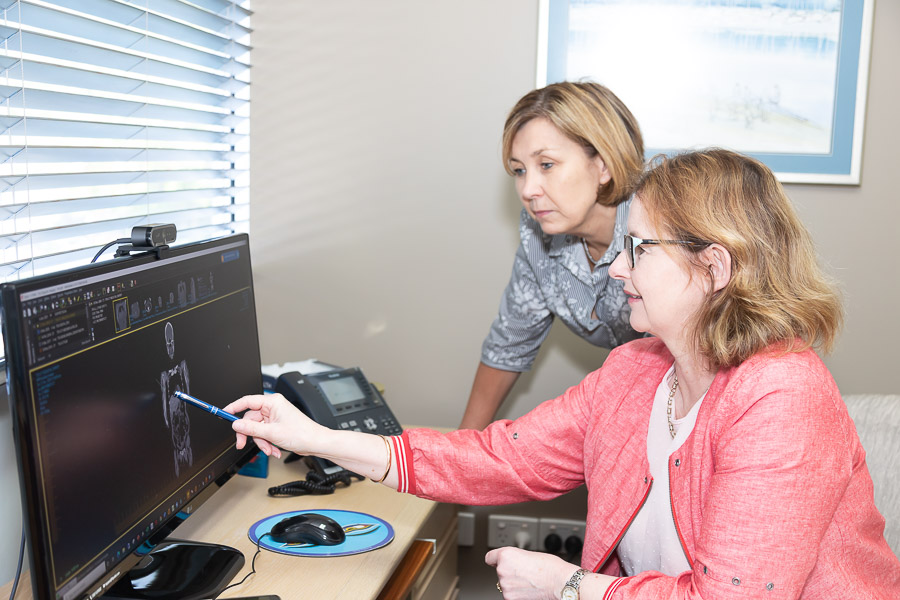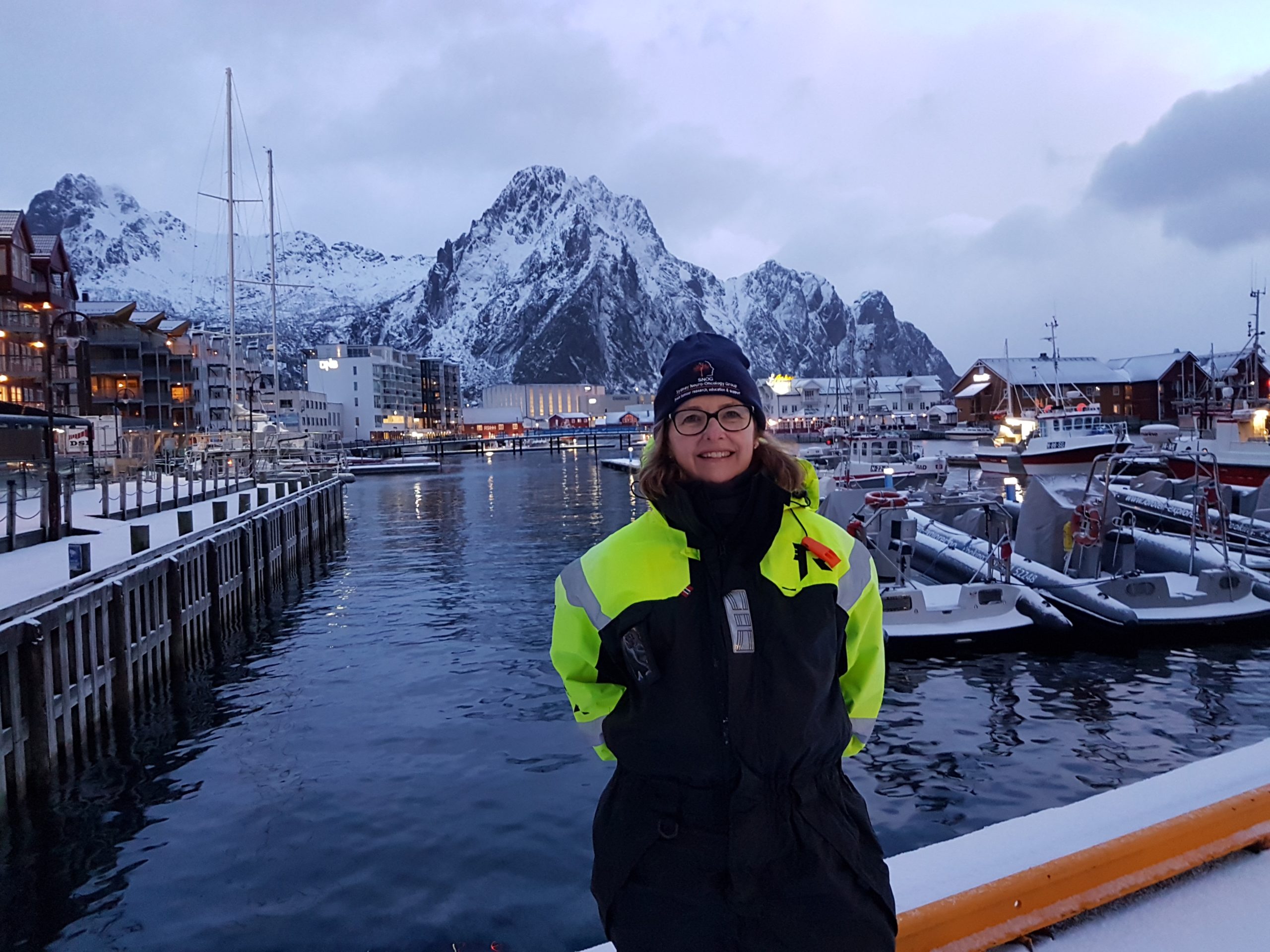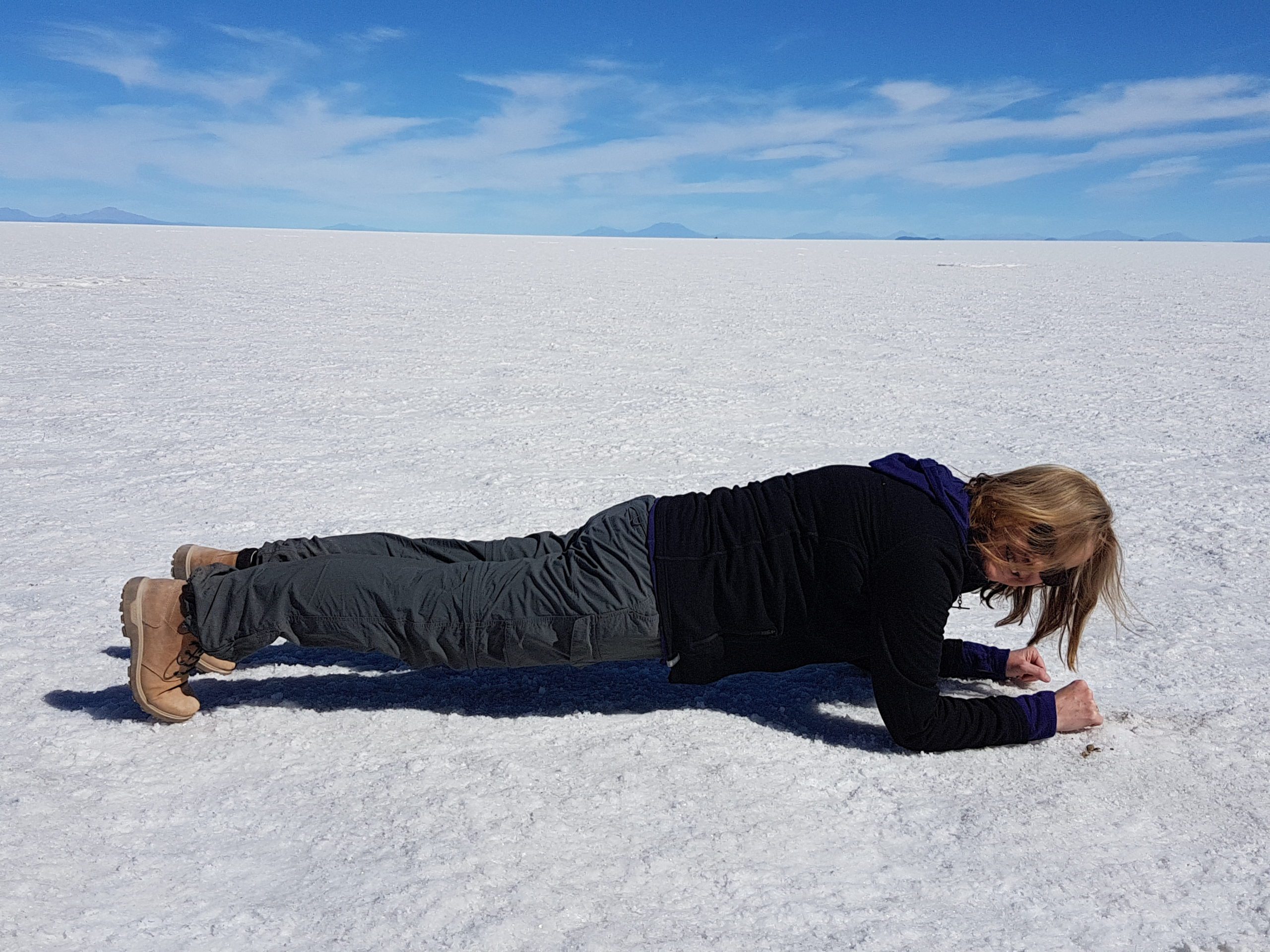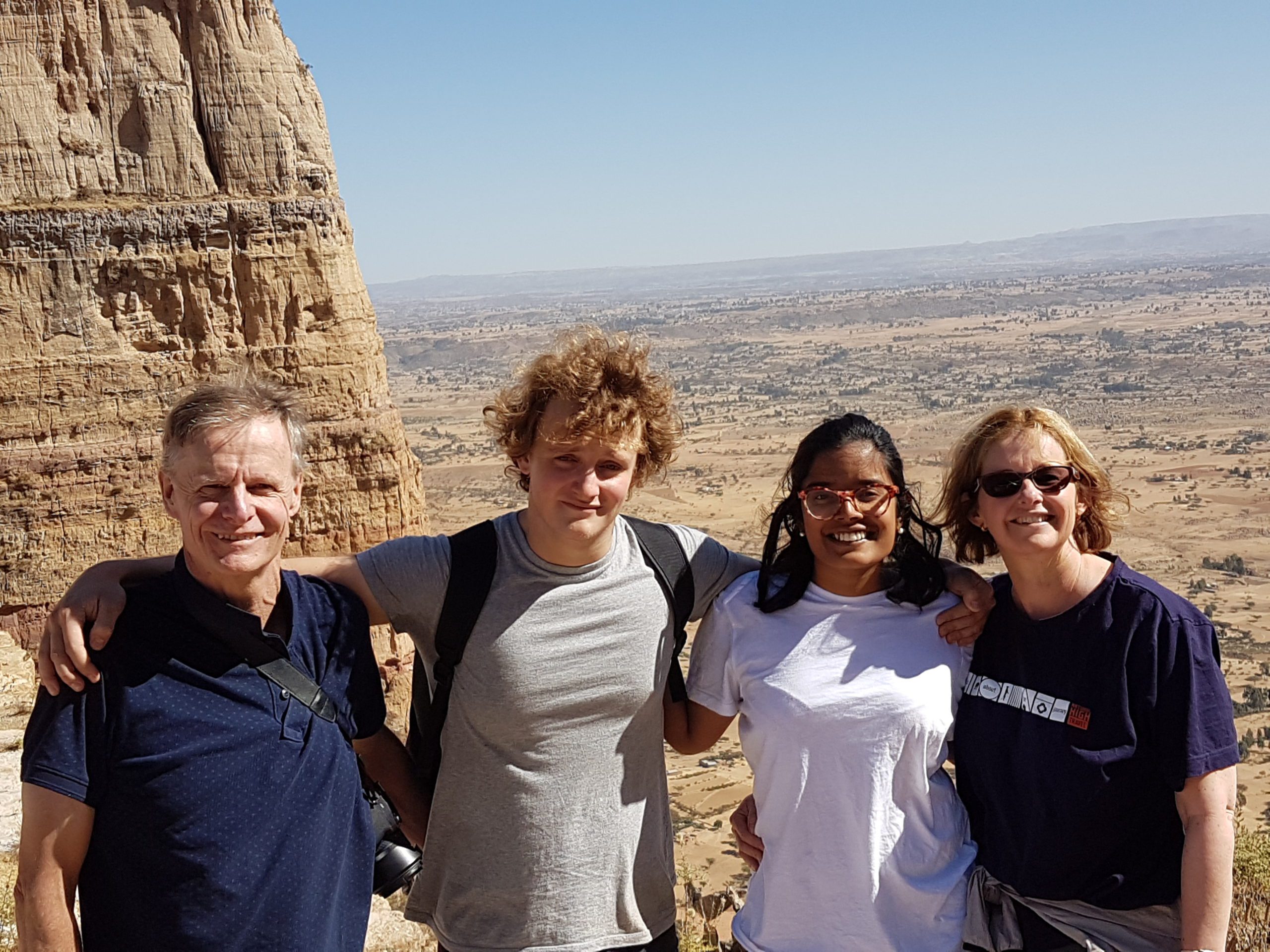Expert Series: Dr Cecily Forsyth on how to live your best life with MPN

Dr Cecily Forsyth talks to her MPN patients “a lot” about what they can do to improve their health, often highlighting the findings of a study on integrative medicine in MPN.
According to the results, published last year, of an international survey of 858 participants, integrative medicine offers unique symptom management strategies. These are based on interventions such as aerobic activity, strength training and massage for decreased MPN symptom burden, depression, fatigue, and higher overall quality of life.
“The SIMM study was coordinated by Ruben Mesa*, who is the king of MPN symptoms,” said Dr Forsyth, a clinical haematologist with a special interest in the MPNs.
“The survey showed that when you’re living with a chronic malignancy you can improve your symptoms by the things you do, not just the pharmacotherapy that your haematologist prescribes.
“Integrating physical activity, yoga, massage, art therapy–all kinds of different things–can improve your quality of life,” Dr Forsyth explained.
“This is an important message; it’s all about how to live your best life.”

Looking at the information and discussion in some posts on some Facebook support groups for MPN, Dr Forsyth felt there was too much negativity.
“Giving people a different, optimistic, message is really important,” she said.
“It’s about asking yourself, how do I live my best life, and how do I manage my symptoms so I can live my best life?”
“Helping patients with that is incredibly important, and it’s really well received; patients like to know that they can do things that can improve their symptoms.
“We know MPNs cause a lot of symptoms, but I don’t get bogged down about what’s causing them,” said Dr Forsyth.
“Whether your fatigue is from your MPN, stressful job, grouchy husband, or difficult children is irrelevant? What is relevant is that you are tired and how can we help you manage your fatigue to the best of our ability?
“It’s about moving your focus, because there’s no whizzbang therapy that means suddenly your symptoms have gone.
“It’s a way of managing them, and that will include patient-initiated activities and strategies,” said Dr Forsyth, whose nurse practitioner, Jacqui Jagger, also has an interest in symptom management in MPN.
“It’s about making sure you’re productive, you still have good relationships in your life, and you still have financial, work and vocational goals that all contribute to having a good quality of life. We try and work with our patients to achieve this.”
The SIMM study showed people do “a wide variety of activities” to try and help improve their lives, and those who exercise and who control their weight do have improvement in their symptoms.
“I explain to patients that they can try a wide range of activities such as yoga, strength training, Tai Chi, dance therapy …” and find what they enjoy and what inspires them.
“I tell patients repeatedly, exercise is needed. It’s absolutely fine to have a lovely massage but you also need to address the exercise and activity side of integrative medicine as well’.
“Participating in any kind of physical activity and strength training will improve your symptoms; you need to find an activity that suits you.
“I’m not a runner, I don’t enjoy that. But I’ve taken up pilates in the last five years, which I really enjoy.
“And I tell patients… that’s my time, when I’m not thinking about what work I haven’t completed? What am I going to cook for dinner? Have I done the washing? When am I going to do the letters?

“I’m too busy thinking, ‘how on earth am I going to get my leg up that high?”
“And I tell them that it clears the white noise out of my head. I can’t think about the stresses of work and life in a pilates class. I started pilates for my back but have found it to be just as good for my head as my back!
“I often give that example to patients and say, ‘you need to find what’s right for you’, whether it’s meditation or having a massage–things that allow you to destress.
“Doing an activity where you have to concentrate and focus on that activity, it could be art or ceramics, allows you to escape the worry about your MPN and life’s stresses.
“All this can help, particularly our patients with polycythaemia vera (PV) and essential thrombocythaemia (ET),” said Dr Forsyth.
“We want to try and make sure they’re in the healthy weight range, that they don’t smoke, and their cholesterol is under control… the whole range of interventions that will have an impact on symptom burden, quality of life, and risk of complications from the disease.”
Video consults and second opinions
Since the pandemic hit in 2020, Dr Forsyth has become an advocate of video call consultations and she’s convinced “they’re fabulous”.
“It’s one of the things that’s really improved the service for patients,” she said.
“I’m surprised by how useful they’ve been and, in the MPN patient population, it’s enabled people to see a haematologist with a little bit more of an interest in MPN, who are some distance away from where they live.
“They’re still under the care of their local haematologist, but they can have a second opinion or more direction if they’ve got tricky management problems with someone more experienced in MPN, without taking a day off work, without travelling, and certainly without crossing borders, which has been completely impossible.
“Some patients previously went to great lengths to travel to Gosford, where I am, and being able to offer telehealth is very time efficient for patients.
“I see a lot of patients with MPN, including second opinions, and have a little group of patients who’ve travelled to see me and whom I share care with their local haematologist,” explained Dr Forsyth. “I actually have a patient who has travelled from Far North Queensland for a second opinon.”
“He came down to Sydney for a reason, a couple of years ago, and saw me to ask me about interferon. It was in the early days of interferon being funded by the Pharmaceutical Benefits Scheme (PBS) for myeloproliferative neoplasms. His local haematologist hadn’t had much experience [with it].
“I still catch up with him once a year, which is much easier now there’s telehealth. I can have a good chat to him, and he’s shown me around his house and introduced me to his pets.
“It’s really a very enjoyable way of consulting,” said Dr Forsyth.
“I never have any hesitation, for my own patients, about organising a second opinion for them.
“And I always feel that if a patient wants a second opinion I try and ensure that it is opinion and advice that will benefit the patient and that maybe I would learn from also,” said Dr Forsyth, who is happy to make the referral.
“I tailor the recommendation to a person who is appropriate for the patient to see, and that’s not necessarily their next-door neighbour’s brother’s cousin’s uncle!
“If I organise the referral then patients can take all their results with them, a copy of all the pathology, all the imaging, and I can write a letter about why I’ve chosen what I recommended.
“I say to patients… if you do want to seek a second opinion, raise this with your treating haematologist. Talk to them about it and, if you feel comfortable, tell them why you would like a second opinion.
“Some haematologists don’t like it and feel upset about it. But we have to remember this is not about haematologists’ egos, it’s all about the patient and their disease, and whatever is best for the patient is fine by me.
“Sometimes people seek a lot of different opinions. There are patients that I have been the fourth haematologist they’re involved with, and I think that gets challenging for the patient.
Sometimes patients seek a second opinion because they haven’t got a good working relationship with their first haematologist, and you do need that.
“When you have a chronic illness, you need to be able to communicate effectively and feel that your haematologist cares for you and tries to assist you as best they can with your management.
“In the global era, sometimes people get advice over the internet in support groups that comes from outside Australia, where therapies are suggested that aren’t available or funded here.
“Patients need to bring these kinds of things up with their treating haematologist and say, I would like a second opinion. Sometimes they can phrase it as their family is keen for them to get a second opinion. It can be a bit easier to raise it from that perspective,” said Dr Forsyth.

How Dr Forsyth got into medicine, haematology and MPN
“I didn’t come from a medical background but was always interested in medicine and liked people, and being interested in science, the idea of going into medicine appealed.
“I enjoyed each term I did as a junior doctor, from intern to resident, and thought, ‘oh, I could be a gastroenterologist, or I could be… whatever.”
“Then, when I did haematology, I just loved it.
“I liked looking after people who were significantly unwell; that didn’t seem daunting. I didn’t mind talking to people about their life-threatening illnesses, and I liked the ability to do pathology at the same time; to see what their bone marrow looked like under the microscope, and care for the same patient,” said Dr Forsyth.
Today, due to her clinical load, Dr Forsyth is “just a clinical haematologist” but one who finds MPNs “an interesting group of illnesses”. This intensified “about two decades ago” when she took over the Australasian Leukaemia & Lymphoma Group’s PT-1 study as principal investigator from Professor Andrew Grigg.
“From there my passion for MPN has grown,” said Dr Forsyth and she calls herself “a community haematologist”.
She sees whatever type of haematology walks in the door of her practice on the Central Coast of NSW, 100km north of Sydney, but she has a love for MPN, which she describes as “a chronic blood cancer resulting in the overproduction of mature blood cells and associated with a wide range of significant symptoms that impact on quality of life”.
Access to MPN treatments
“We can do things better than we do for MPNs and that inspires me to raise patients’ awareness that there have been advances in diagnosis and management,” said Dr Forsyth.
“Overall, as a group, people with MPN are getting good care in terms of what is available for those patients.
“But sometimes you may have a haematologist who’s not experienced in using interferon [peginterferon alfa-2a (Pegasys®)].
“There has not been much pharma support available for haematologists and patients because of the very strange way it was PBS-funded, without a TGA indication,” Dr Forsyth explained.
“That’s why the MPN Alliance patient information sheets on interferon are so critically important in providing information for patients, and the clinicians about how to use interferon.”
The PBS-funding of Pegasys for patients with MPN, in 2018, “was really fantastic”, Dr Forsyth said.
“We’re still rejoicing in having pegylated interferon, as opposed to non-pegylated interferon. It’s been a good opportunity for patients.
“I think we will continue to see more and more data about the potential for interferon to modify the natural history of MPNs.
“Internationally, there is increasing evidence of the role of interferon and there’s an ultra-long-acting interferon which we don’t have in Australia, called ropeginterferon alfa-2b, that has less toxicity and equal efficacy [as Pegasys].”

Dr Forsyth said, disappointingly, ruxolitinib was not available through the PBS for Australian patients with PV who can’t tolerate or who have failed treatment with hydroxycarbamide (formerly known as hydroxyurea).
“They can’t get ruxolitinib until they’ve transformed to myelofibrosis (MF).”
Dr Forsyth said many centres are participating in clinical trials looking at adding other drugs to ruxolitinib for patients who are newly diagnosed.
“And for patients who have failed ruxolitinib, or are losing their response, studies are looking at what other drugs can be used to improve the response rate in that group.”
Dr Forsyth said the outcomes for young people–diagnosed under the age of 50 years–with ET was very good; they have a near normal life expectancy.
“Most people with ET and PV have a long survival, but on the other end of the spectrum–patients with MF–some of those with very high-risk disease have very short survival.
“Patients with high-risk myelofibrosis at diagnosis, are rapidly moved to bone marrow transplantation as their only curative option,” said Dr Forsyth.
And the group of patients with higher risk MF who are not eligible for transplant want to be participating in clinical trials, she said, “to try and improve their outcome because, unfortunately, MF can be a rapidly progressive and incurable malignancy”.
“There are more studies available with drugs that are more exciting than any other time before, and that’s really encouraging.”
“There’s very good data to show that patients who participate in a clinical trial do well and have better outcomes. That’s because they have access to treatments they wouldn’t have otherwise.
“Some patients may be motivated to participate in a trial because they are contributing to research that may help them and certainly may help other patients down the track,” said Dr Forsyth.
“I like to refer patients to the haematologist who is running a clinical trial, to make sure they have all the information they need and to minimise tests being repeated.
Information on clinical trials is available from ClinTrial Refer
Unmet needs in the MPNs
Dr Forsyth said all the MPNs can transform to secondary AML, many of them by transforming first to MF.
“This is a very unmet need, and AML that has arisen from MPN has a very poor outlook and, in that circumstance, can be very challenging.
“Often patients who you’ve known for a long time with their ET and PV, can suddenly develop changes that are consistent with transforming to AML. It can be very distressing for the clinician as well as for the patient,” she said.
“When transformation to AML occurs it is important to carefully consider what you can offer the patients, how successful treatment is likely to be, and their quality of life.
“For many elderly patients who transform to AML, we choose not to give them induction chemotherapy but offer them supportive and palliative care because, unfortunately, the outlook is grim.
“I think patients have to be realistic,” said Dr Forsyth. “Do you want to spend that time in hospital, having treatment that is unlikely to prolong your life, or do you want to be at home? Those kinds of discussions are difficult for everybody, most importantly, for the patient receiving that news.
“I try to reassure patients that the likelihood of transforming to AML is low.”
“I tell them there is a risk and that usually occurs when the disease has been present for a long time, but that risk is low, that risk is down the track, and let’s look at optimising what we can do.
“Unfortunately, there is no definite evidence that we can alter the natural history of the disease with currently available therapy.
“There is single centre evidence that interferon may have a role, so I might discuss that with patients when considering what cytoreductive therapy to recommend.
“Unfortunately, it does take patients time to cope following the diagnosis of an MPN especially when they realise that it is a blood cancer which is generally incurable.
“For many people, it will never progress, but it really is important in whatever circumstances to live your best life. I think that worrying about tomorrow today is very problematic and I try and move patients on from doing that too much.
“Worrying about what might happen tomorrow can really detract from how you live today.”
“A minority of people are so worried and consumed with anxiety about when their disease may or may not progress that they can’t enjoy actually being well today.
“We need to help those patients and I refer them to an oncology psychologist.”
Advice for the newly diagnosed
Getting advice and information from reputable sources is Dr Forsyth’s key tip.
“I always give my patients the MPN booklet from the Leukaemia Foundation and the card for the MPN Alliance Australia.
“I encourage them to live their best life, tell them there are things they can do to help with their life and that we can manage and control their disease to ensure their quality of life is as good as it can be. I tell them they can live a normal life, hopefully for a very long time, and in some cases with a normal lifespan.
“I try and give them a message of optimism, of self-control of symptoms, and motivate them about what they can do that helps with their quality of life.
“And I try and encourage them to get good support and use good sources of information from the internet and warn them that there are some less reputable sources of information on the web that should be avoided.”
*Professor Ruben Mesa is an international MPN expert who is committed to improving therapeutic options and quality of life for people with MPN, as well as being an active patient advocate.
Last updated on January 3rd, 2023
Developed by the Leukaemia Foundation in consultation with people living with a blood cancer, Leukaemia Foundation support staff, haematology nursing staff and/or Australian clinical haematologists. This content is provided for information purposes only and we urge you to always seek advice from a registered health care professional for diagnosis, treatment and answers to your medical questions, including the suitability of a particular therapy, service, product or treatment in your circumstances. The Leukaemia Foundation shall not bear any liability for any person relying on the materials contained on this website.